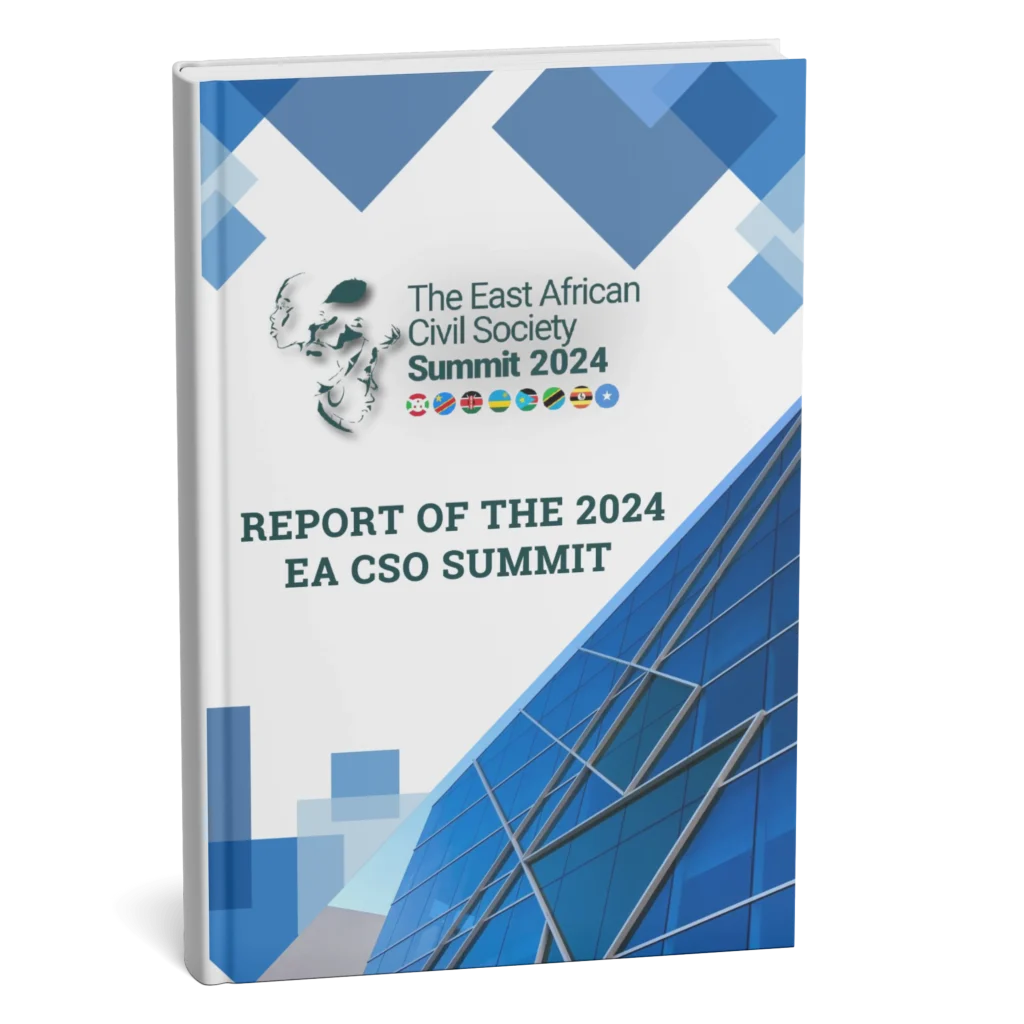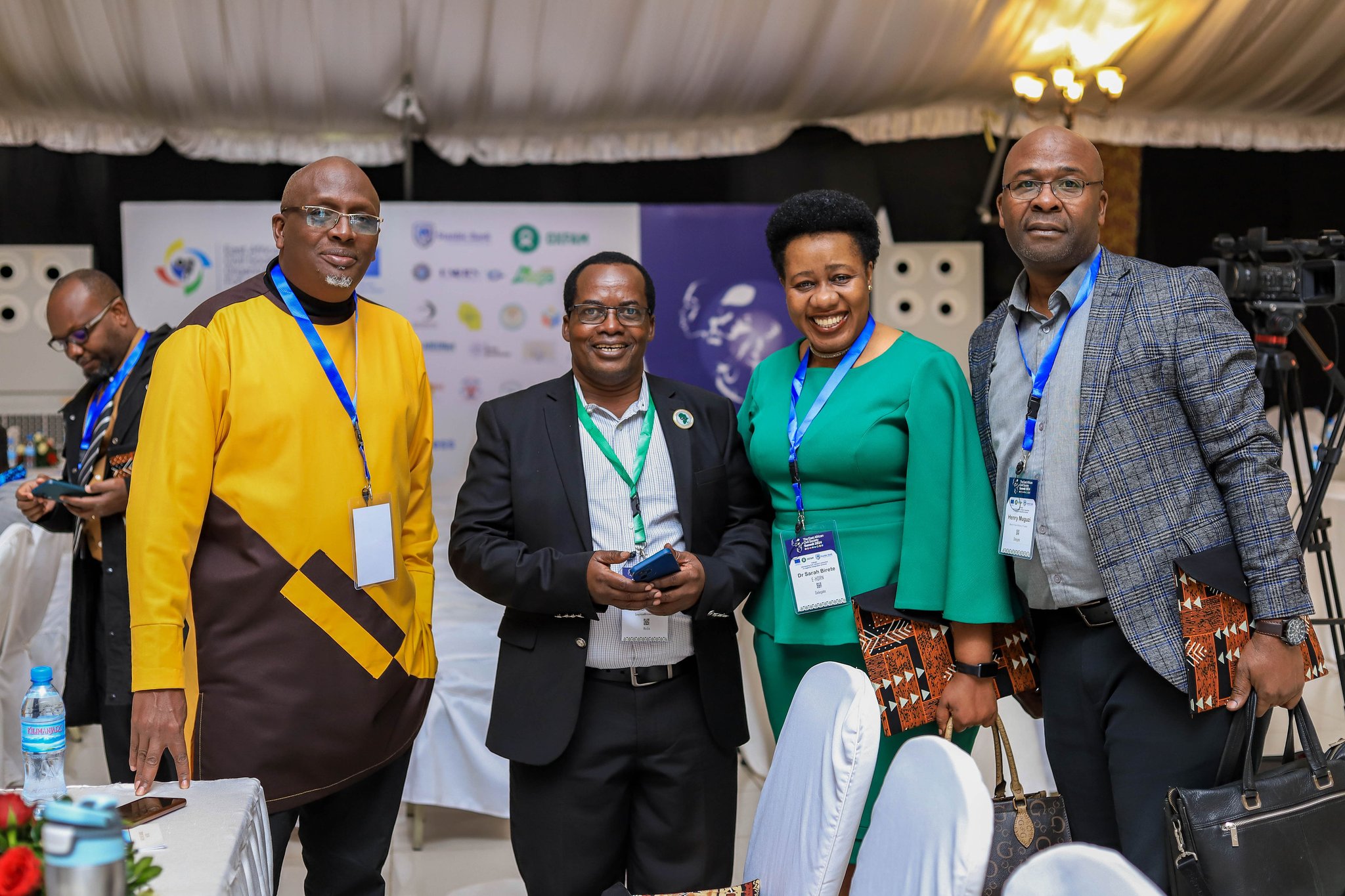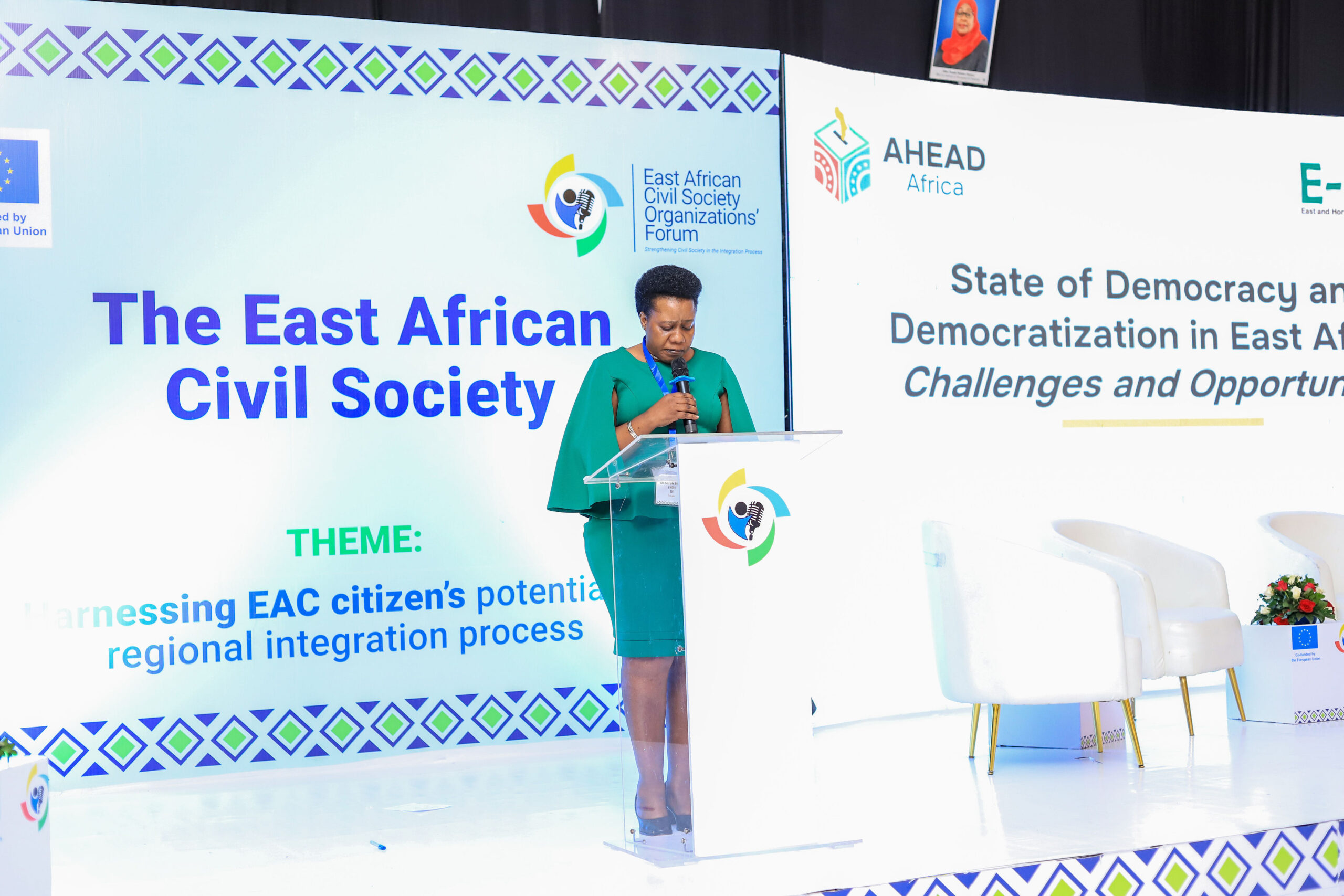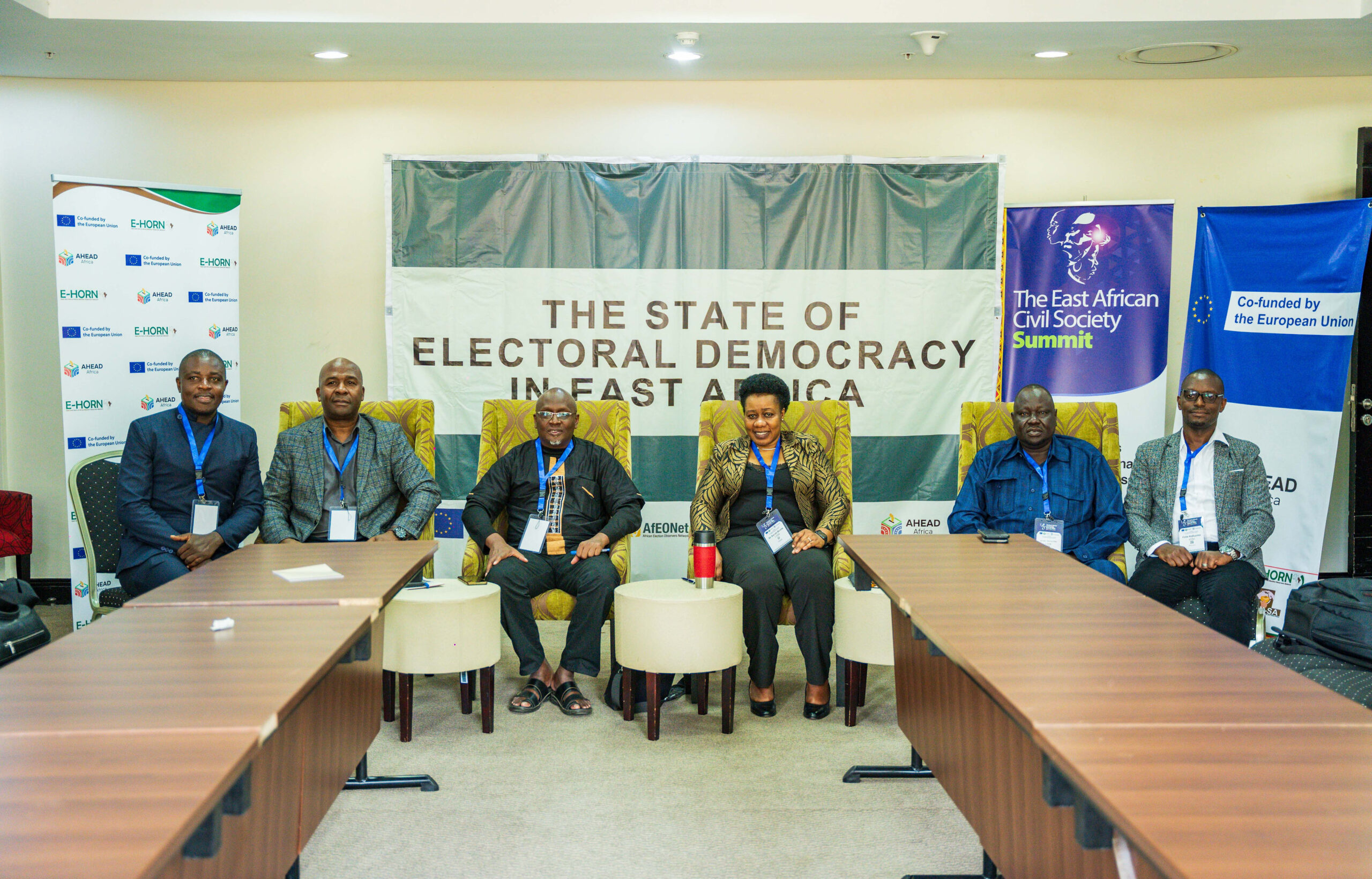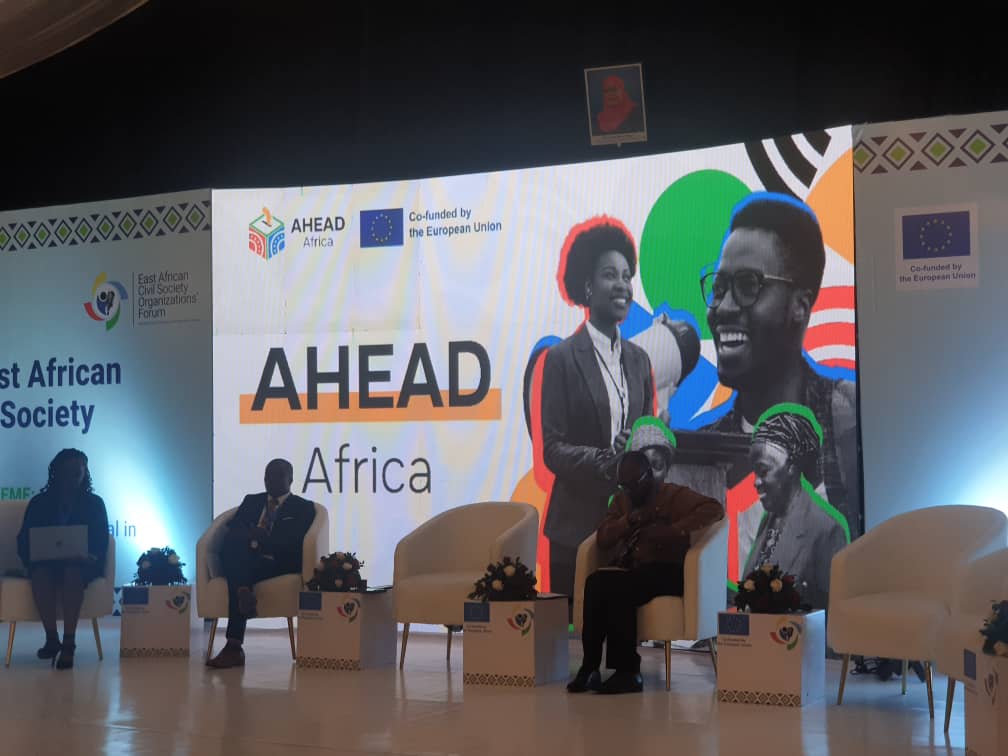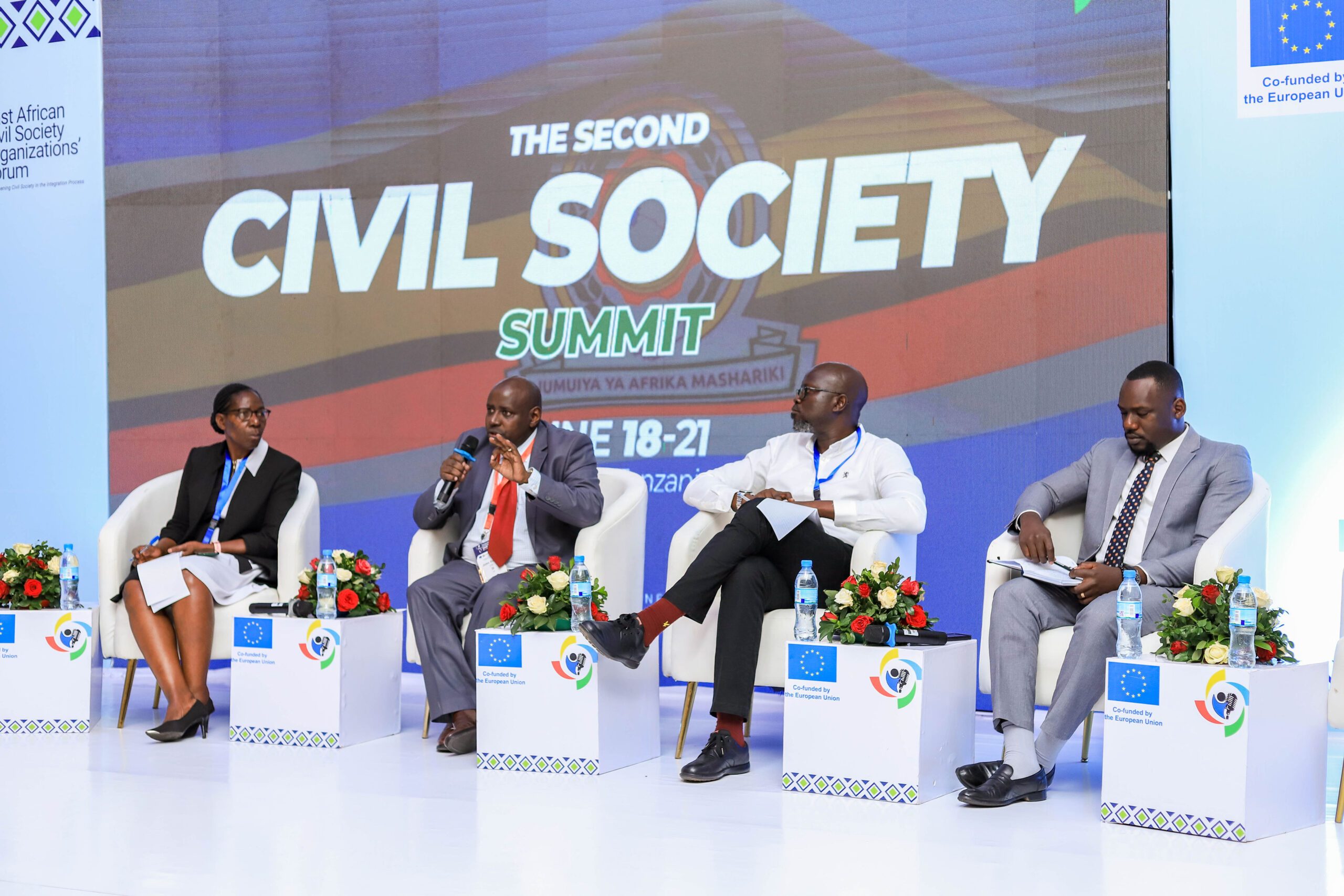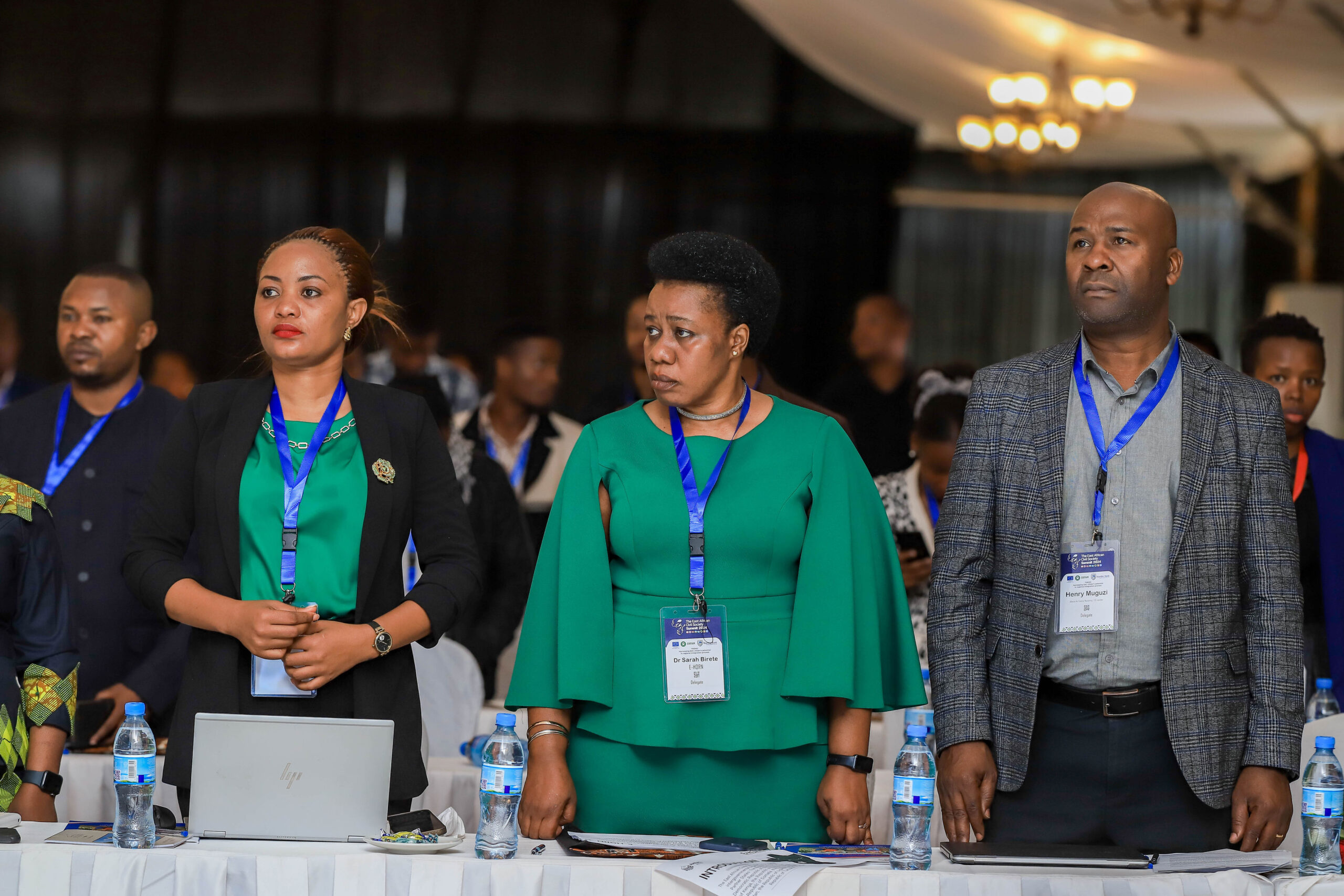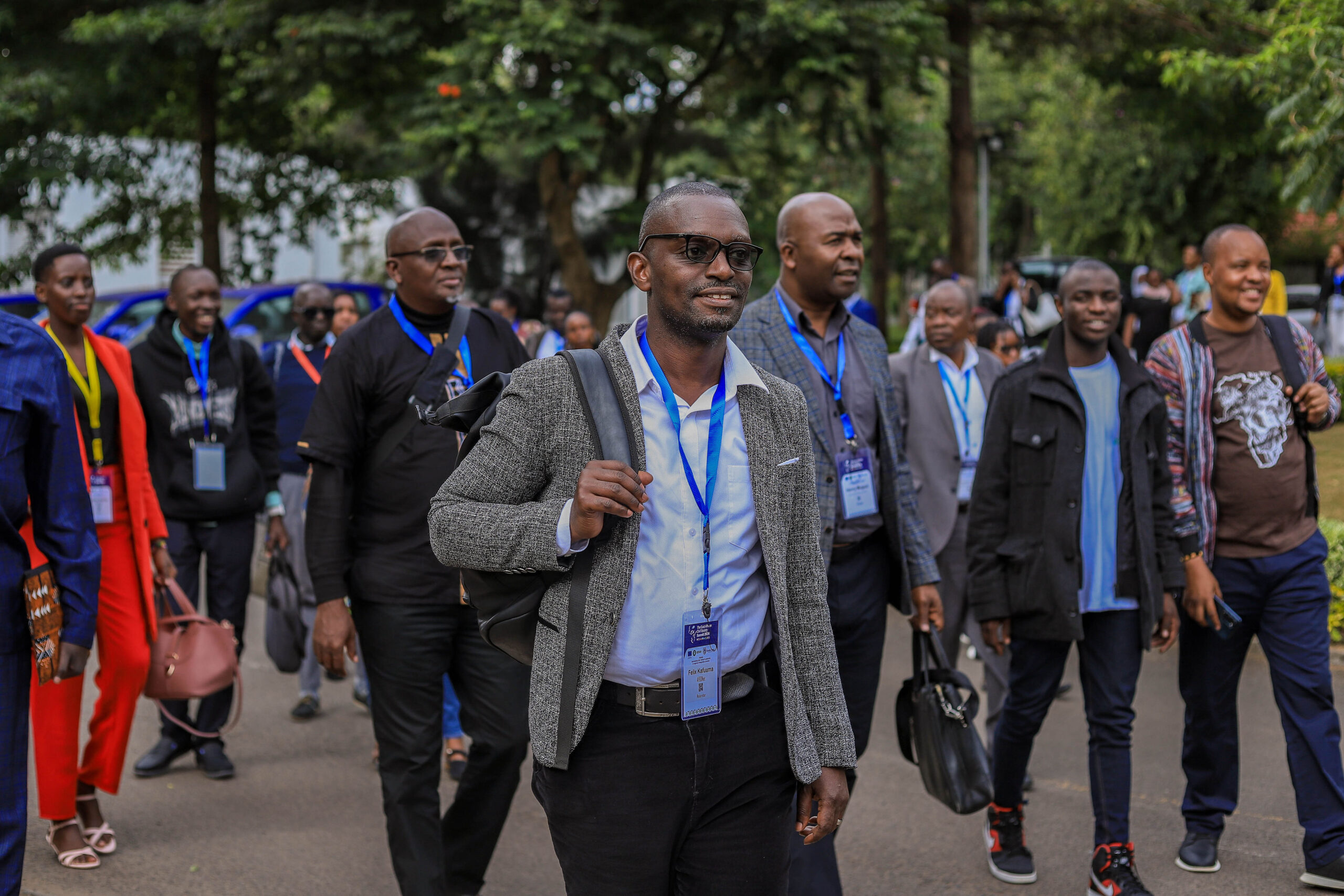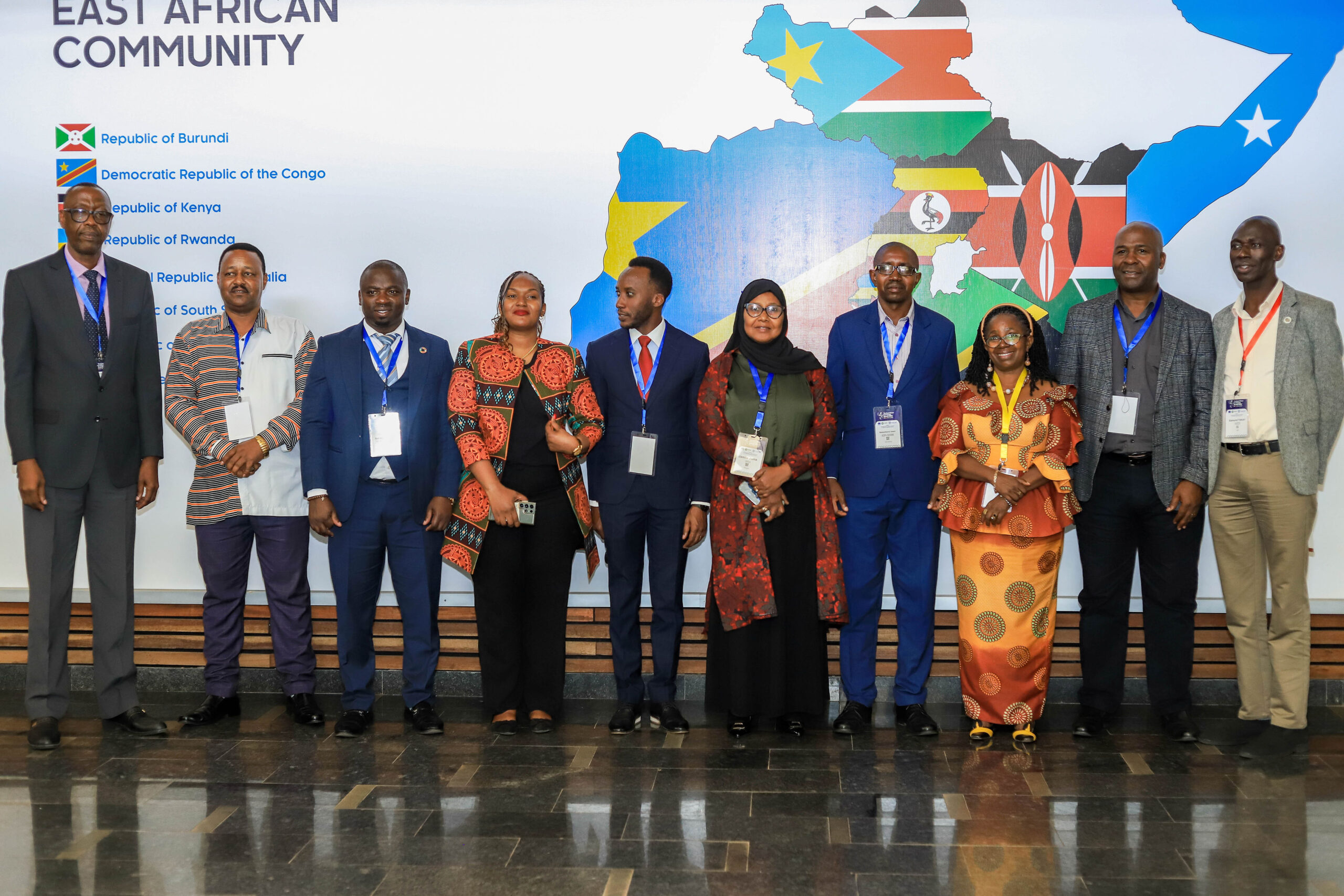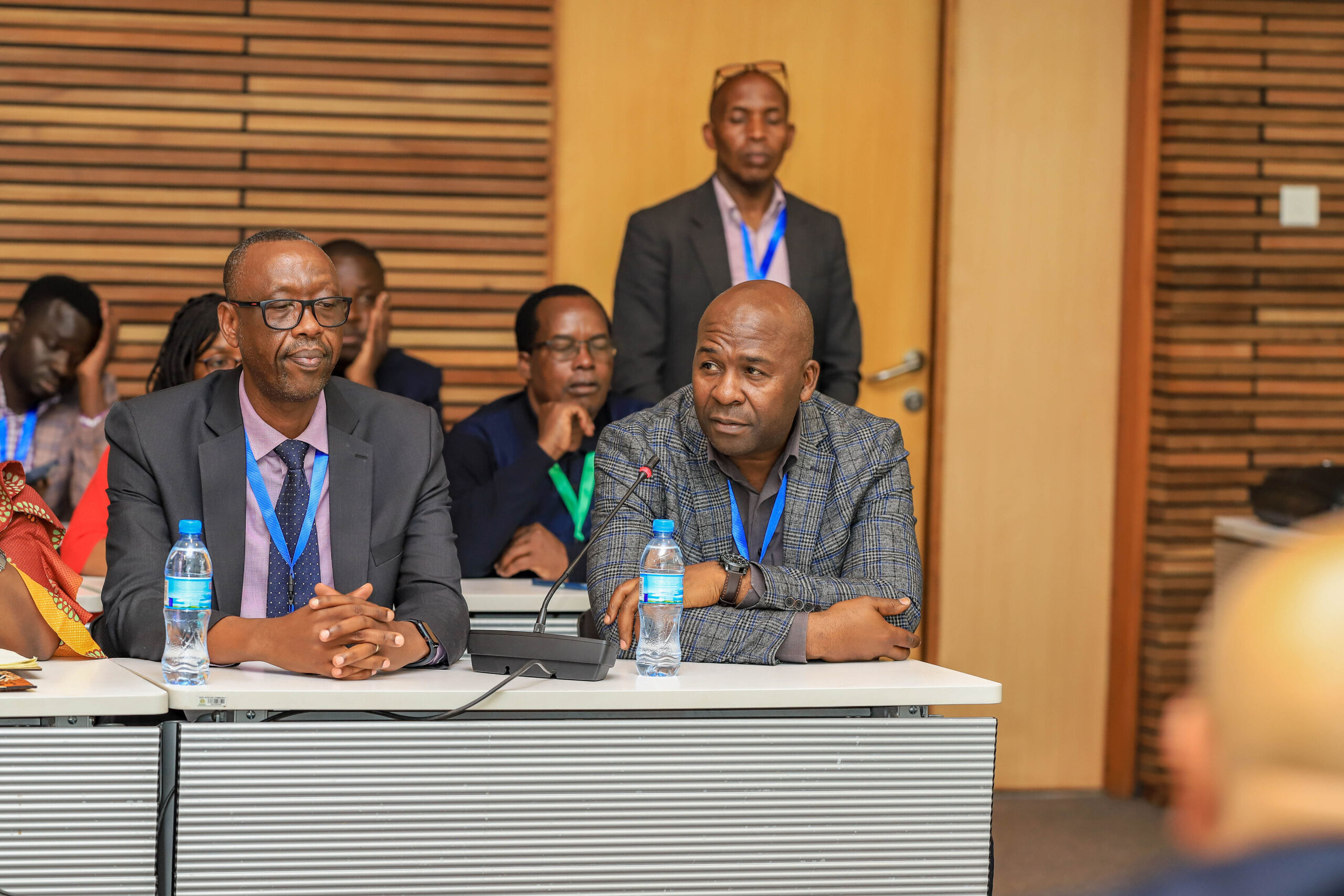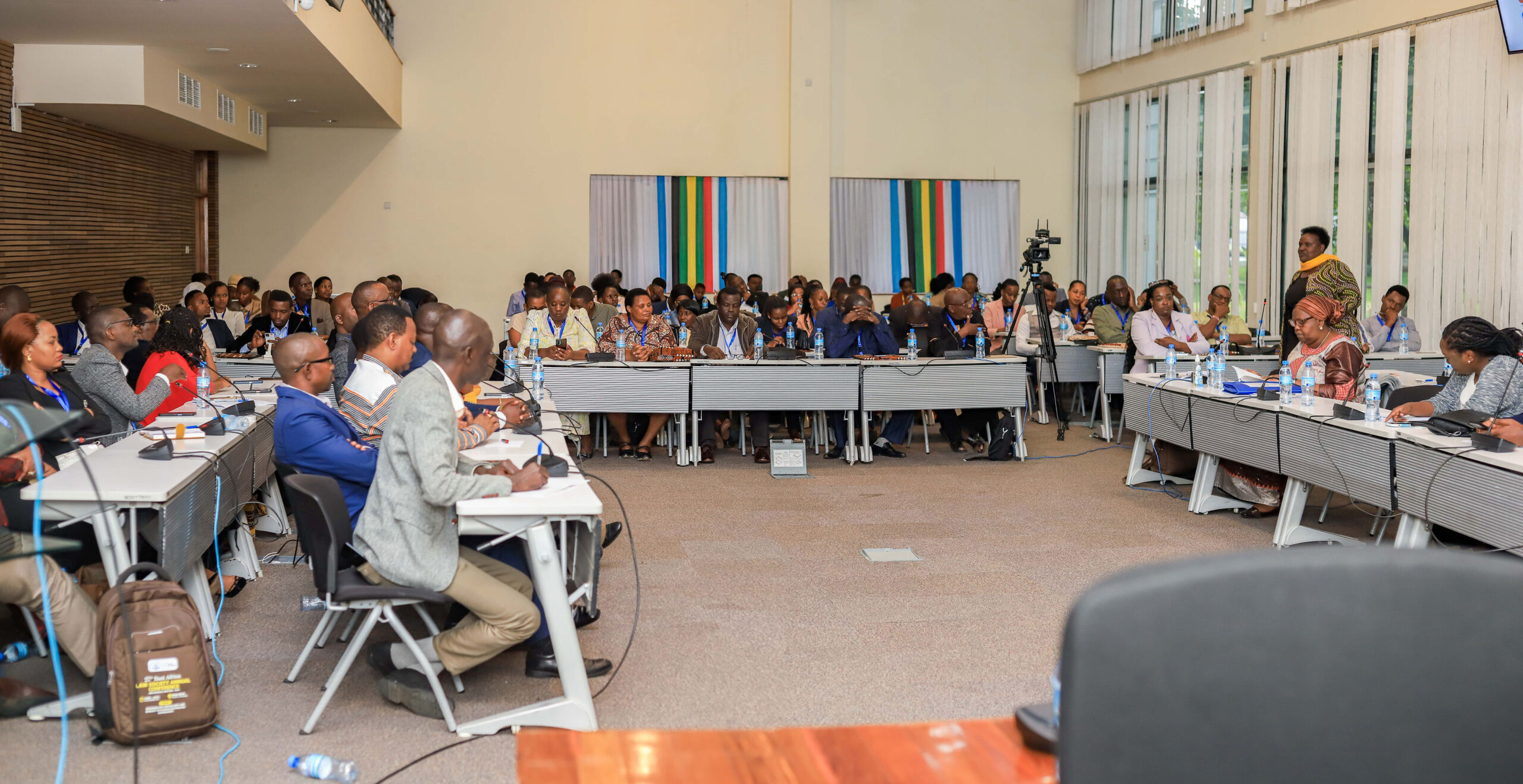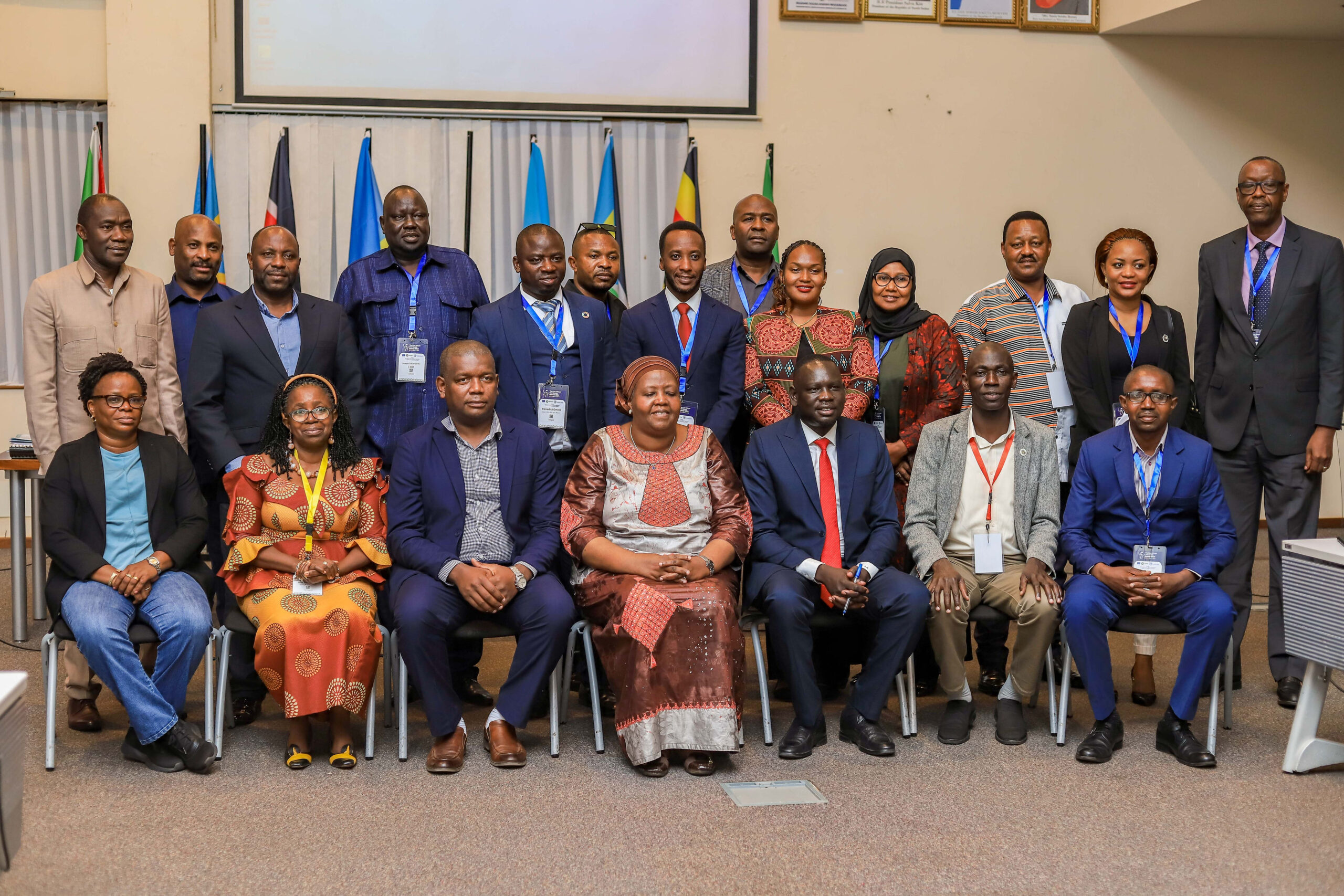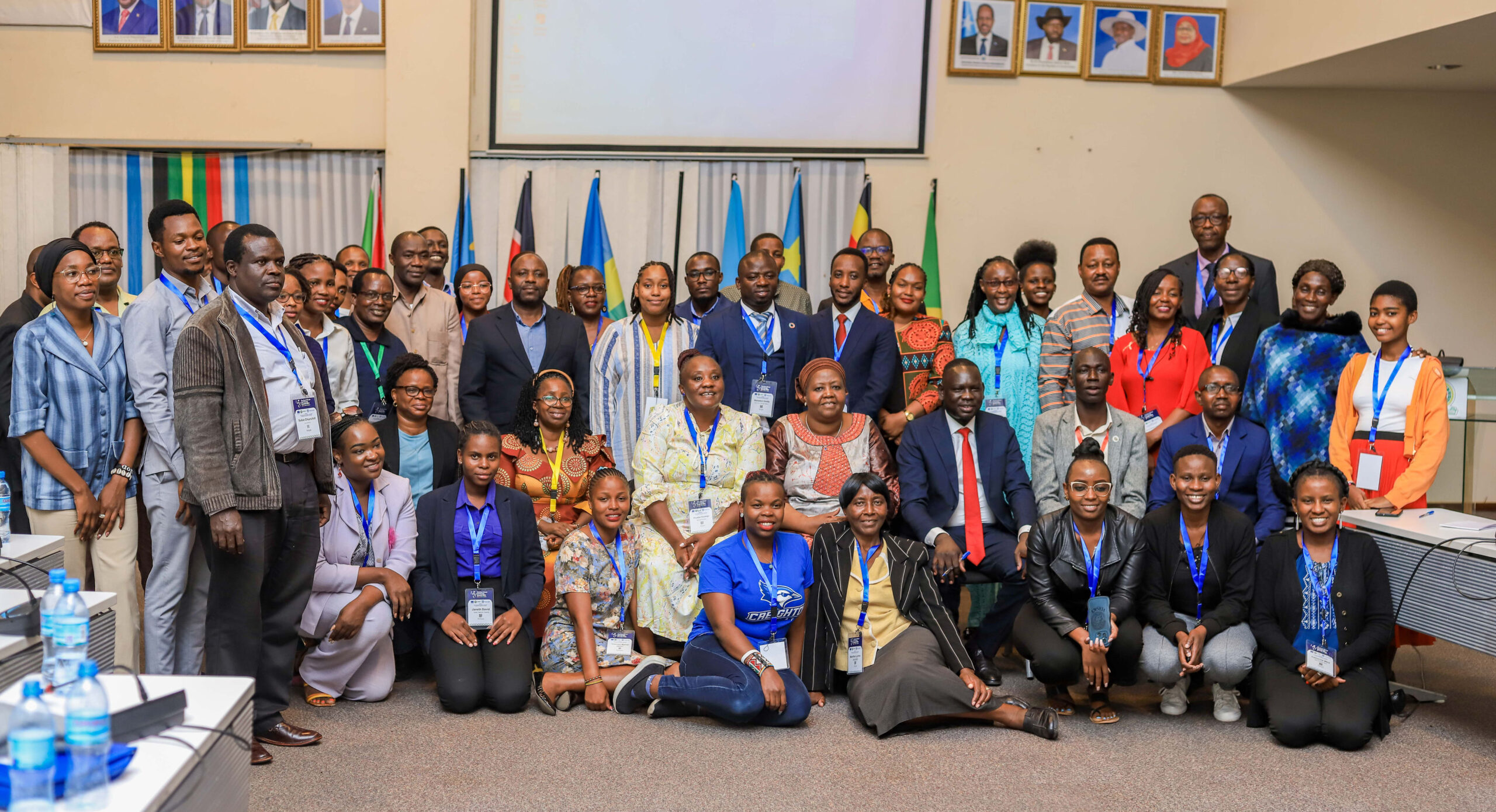From June 17–21, 2024, our partners the African Election Observers Network (AfEONet) and the East and Horn of Africa Election Observers Network (E-HORN) participated in the East African Civil Society Organisations Forum (EACSOF) Summit, held in Arusha, Tanzania. This gathering brought together over 300 participants, including civil society representatives, East African Community (EAC) institutions, EAC member states, and development partners, to address pressing issues related to democracy, regional integration, and citizen engagement, among others.
The Summit offered E-HORN and AfEONet a strategic platform to advance its vision by introducing innovative approaches, forging partnerships, and influencing regional policy. The AHEAD Africa project was introduced during the Summit and the event was leveraged to build strategic alliances, engaging with the EAC Secretariat, civil society organisations, and other regional stakeholders to foster collaborative approaches to governance and electoral integrity. In addition, E-HORN and AfEONet contributed significantly to shaping the Summit’s final communiqué, ensuring their recommendations on democracy and electoral reforms were adopted as key priorities in the region’s roadmap for progress. At the end of the Summit, contributions during various sessions were gathered, and participants’ input was compiled into a communiqué detailing their asks and recommendations. These inputs were shared for review, and the final communiqué was then finalized and submitted to the EAC Council of Ministers the following week.
On 18 June 2024, Dr. Sarah Bireete, the Chairperson of E-HORN, delivered a keynote address titled “Democratic Elections in East Africa: Gains, Challenges, and Opportunities” at the EACSOF Summit. During her address, Dr. Birete highlighted the crucial role of civic space and civil society organisations (CSOs) in safeguarding democracy in the East African region. She emphasised that for democracy to thrive, it must be supported by strong institutions and an engaged citizenry, capable of holding governments accountable and driving positive change.
On 19 June 19 2024, as part of the EACSOF Summit, E-HORN and AfEONet hosted a breakaway panel discussion titled “Choiceless Democracy: Making Elections Work.” The session aimed to delve into the current state of democracy in East Africa, identify key challenges impeding democratic progress, and propose actionable recommendations for enhancing democratic governance. The discussion was moderated by Felix Kafuuma, Head of Programmes at the Alliance for Finance Monitoring (ACFIM), and Marcus Ageng’a, Programmes Coordinator at E-HORN.
The session featured a diverse panel of regional experts, each bringing their unique insights into the challenges and opportunities for democracy in East Africa. Henry Muguzi, the Coordinator of AfEONet, kicked off the conversation by providing a comprehensive overview of the structural challenges facing democratic governance in East Africa. He highlighted the deepening political polarisation within many countries, a trend that has led to growing divisions between political factions and hindered meaningful dialogue. Muguzi also pointed out the impact of unregulated campaign financing on the electoral process, where money often distorts political outcomes, allowing the wealthiest to have undue influence on elections, and overshadowing the voices of ordinary citizens. He stressed that such systemic issues are preventing many East African nations from achieving truly democratic governance.
Following Muguzi, James Okony, a Council Member of E-HORN, shared his perspective on the upcoming South Sudan elections initially scheduled for December 2024. He outlined the severe challenges that South Sudan faced and still faces in preparing for the elections. Okony spoke about the urgent need to finalize a permanent constitution, South Sudan lacks a permanent constitution due to a combination of historical, political, and procedural challenges. After gaining independence in 2011, the country has been governed by a Transitional Constitution (2011), with attempts to draft a permanent constitution repeatedly delayed. He also highlighted the funding shortages plaguing the Electoral Management Body (EMB), only ⅓ of the required budget funding had been released towards the now postponed election in 2024. In addition, he emphasized the critical pre-election tasks that remain unfinished, such as boundary delimitation, a task that must be completed to ensure fairness in the election process. His insights illuminated the complex obstacles facing one of the youngest countries in the region as it strives to conduct its first credible elections in years.
Next, Dr. Sarah Bireete, E-HORN Chairperson, discussed the recurrent and emerging threats to electoral integrity in the region. She highlighted how the abuse of incumbency remains a major problem, with sitting leaders often exploiting their power to manipulate the election outcome. Bireete also emphasised the issue of voter apathy, where citizens lose faith in the electoral process due to repeated failures in ensuring free, fair, and transparent elections. A key concern she raised was the misuse of artificial intelligence (AI), particularly in the form of disinformation and hate speech being spread online during election periods, which can severely undermine the democratic process by swaying public opinion with false narratives.
Lastly, Mulle Musau, E-HORN’s Regional Coordinator, addressed the role of technology in elections. He acknowledged the strides made by countries like Kenya, which has seen significant improvements in its use of technology for electoral transparency. However, Musau pointed out the regional challenges, where technology often lags behind in other East African nations, leaving gaps that can be exploited. He called for technology to be aligned with constitutional principles, ensuring that it is used to enhance transparency, accountability, and security in the electoral process.
The panel discussion on “Choiceless Democracy – Making Elections Work” provided an in-depth analysis of the key challenges hindering democratic progress in East Africa. The recommendations that emerged from this session serve as a call to action for governments, CSOs, and regional bodies to work collaboratively toward creating more robust, transparent, and inclusive electoral systems. The dialogue highlighted the importance of citizen engagement, electoral reforms, and the strategic use of technology in safeguarding democracy. By addressing the commercialisation of democracy, unregulated campaign finance, and emerging threats like AI misuse, the panelists highlighted the urgent need for bold actions to secure the future of democracy in East Africa.
A unified call for action to strengthen democratic governance and electoral integrity in Eastern Africa
The following were E-HORN and AfEONet recommendations and calls to action shared for the final EACSOF Summit joint communique:
- Revitalise the Annual Secretary General’s Forum and Regional Dialogue Committee.
- Allocate adequate budgets to finance civil society engagement and the Consultative Dialogue framework.
- Maintain consistent channels for dialogue with civil society on democratic governance
- Embrace digital platforms for public participation and information dissemination.
- Commit to the ratification and domestication of the African Charter on Democracy, Elections, and Governance.
- Develop and implement an EAC draft Protocol on Good Governance.
- Resource EAC organs adequately and prioritise citizen engagement.
- Promote digital literacy and enforce cybersecurity policies.
- Advance a rights-respecting digital ecosystem and robust data protection regulations.
- Embrace technology to improve electoral and democratic processes.
- Monitor the status of civic space and develop activity and implementation trackers.
- Establish awards recognizing excellence in citizen engagement in the region
- Advocate for the development of a CSO Bill.
- Track and evaluate the implementation of summit recommendations.
While the 2024 EACSOF Summit marked a significant moment in advocating for democratic reforms, E-HORN and AfEONet’s work is far from over, they are committed to ensuring that the recommendations outlined during the Summit are not merely discussed but implemented.
Pictures of AHEAD Africa partners on the 2024 EACSOF Summit
